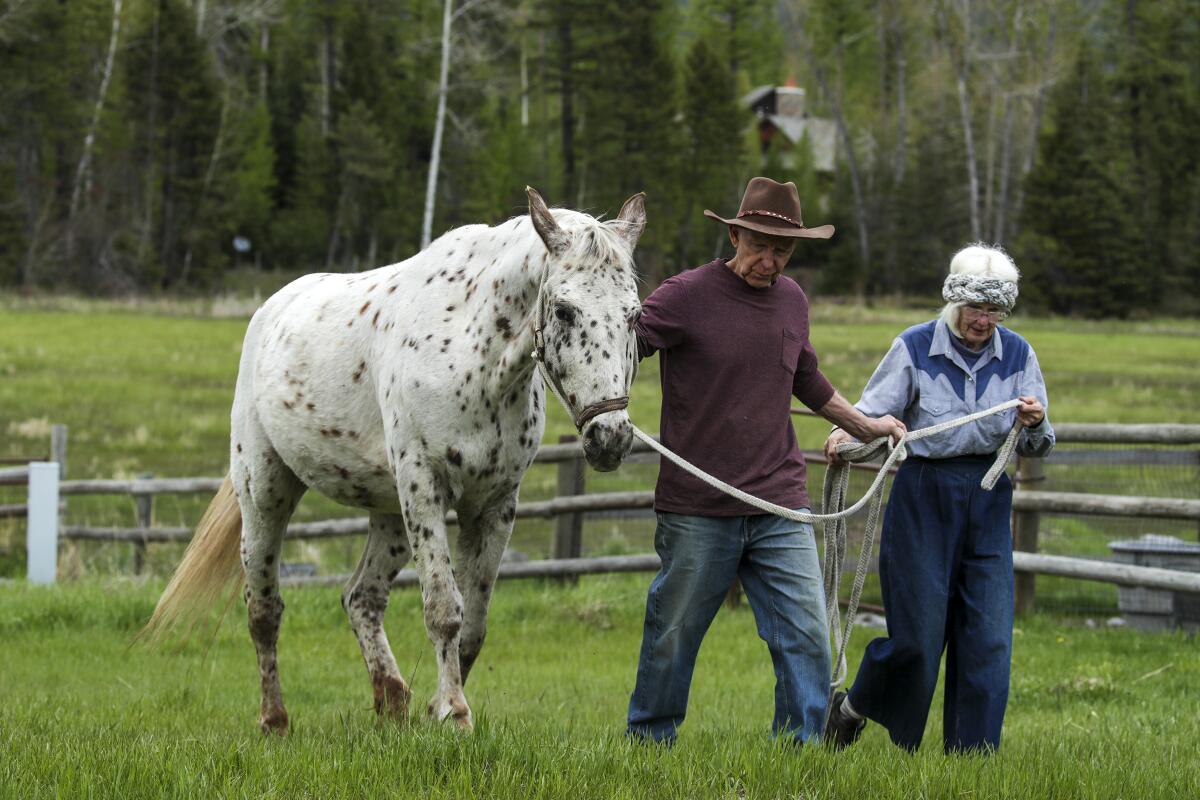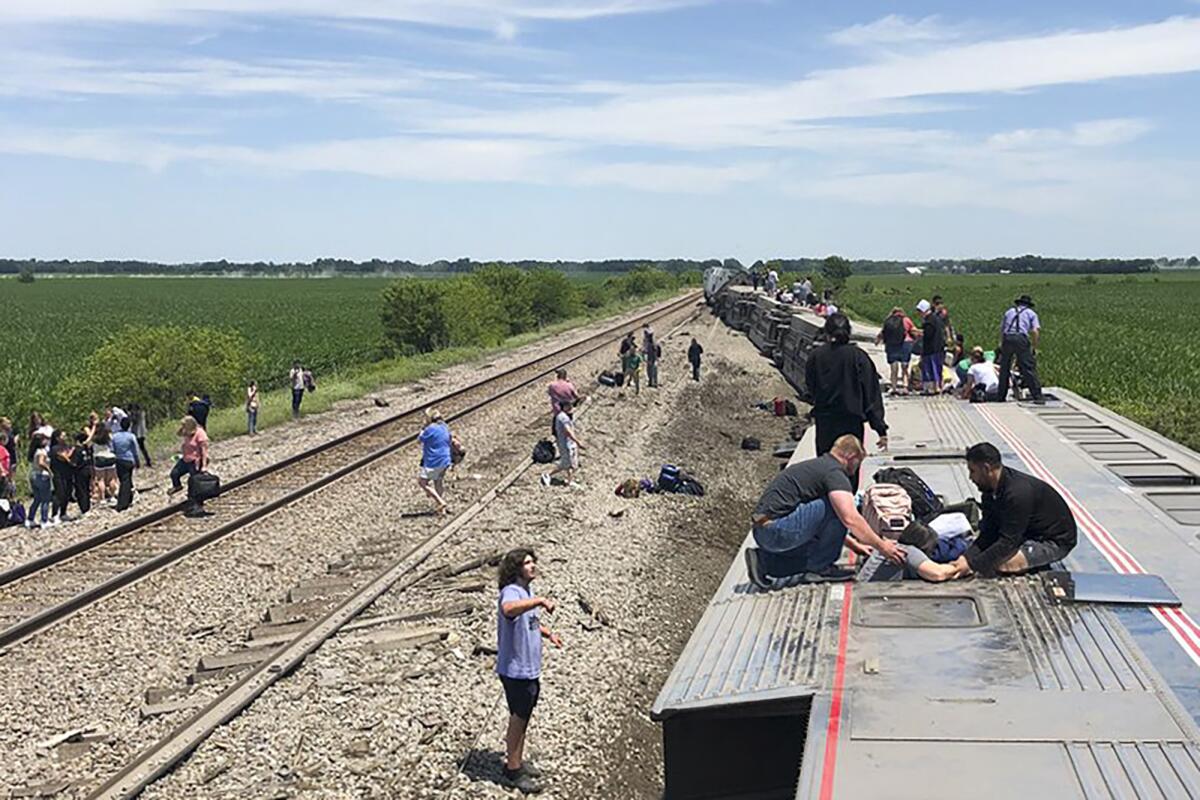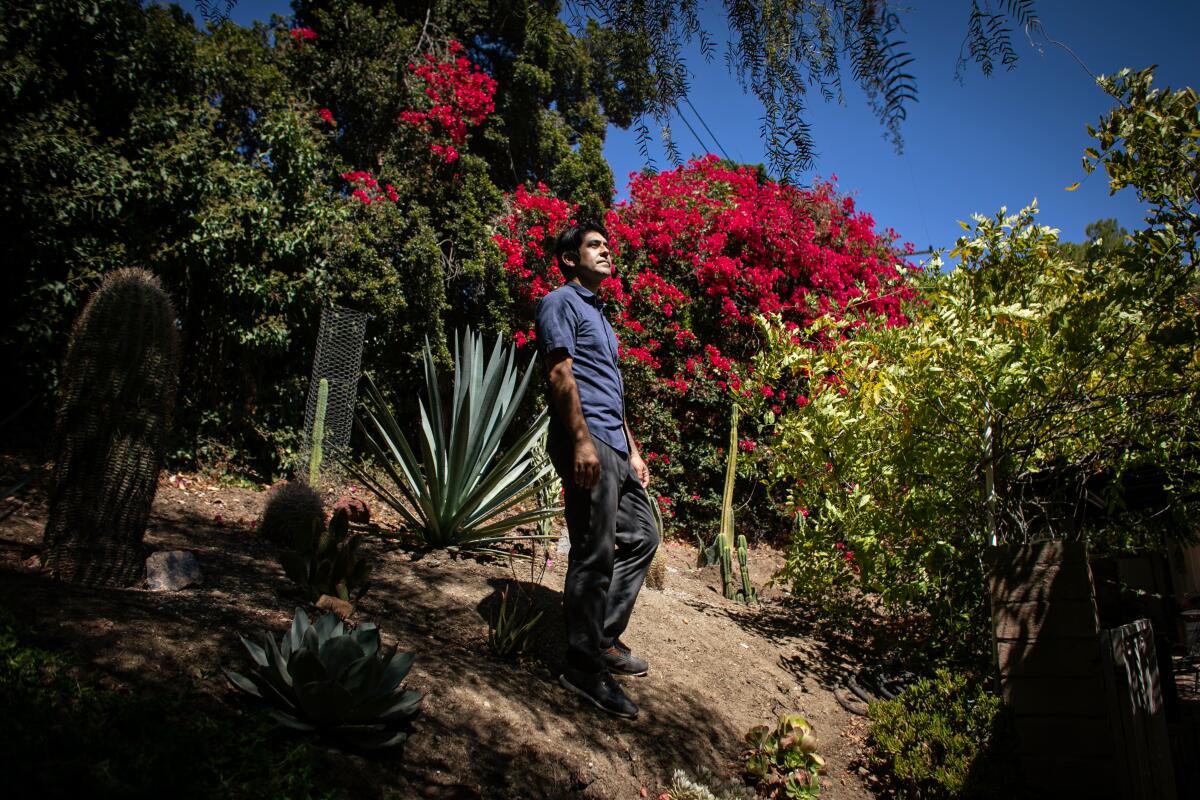Essential California: How a young L.A. couple’s illegal abortion paved the way for Roe vs. Wade

- Share via
Good morning, and welcome to the Essential California newsletter. It’s Tuesday, June 28. I’m staff writer Laura J. Nelson, filling in for Justin Ray.
Women who wanted abortions in Los Angeles County in 1966 had few options, none of them good. A law that had been on the books for nearly a century made it a felony to perform, provide or procure an abortion anywhere in California unless the woman’s life was at risk.
But desperate women found ways. Some traveled to Tijuana; others sought clandestine providers in Southern California, hoping for a doctor, not a butcher.
Botched abortions performed in secret injured hundreds of women every year. In 1966, at least 2,500 women were admitted to Los Angeles County’s general hospital following what The Times described at the time as “incomplete” abortions — and doctors were required to inform the police if they believed a patient had sought a termination.
A special squad at the Los Angeles Police Department tallied 40 to 60 arrests and prosecutions of doctors annually. One Los Angeles doctor was sentenced to a year in jail.
That was the landscape when Cheryl Bryant, 22, learned she was pregnant in April 1966. She and her boyfriend, Clifton Palmer, were “poor as church mice,” she recalled, and couldn’t afford a baby. She wanted to graduate college and become a teacher; he, a school psychologist.
In a story that reflects the country’s past and future, my colleague Brittny Mejia tells the story of Cliff and Cheryl — now in their late 70s — and their search for a way out. She also introduces us to the two men who helped them, including Dr. Leon P. Belous, who was arrested and convicted of conspiracy to commit an abortion after the LAPD burst into the apartment where Cheryl was recovering from the illegal procedure.
Belous’ appeal of his conviction led to a 1967 state Supreme Court ruling that California’s century-old abortion law was unconstitutional. The People vs. Belous ruling was believed to be the first time a high court in the U.S. had ruled on the constitutionality of an abortion statute, and was cited in a wave of similar challenges in other states — including the Texas lawsuit that became known as Roe vs. Wade.
[Read the story: “Her illegal abortion paved the way for Roe. 56 years later she shares her story”]
And now, here’s what’s happening across California:
Note: Some of the sites we link to may limit the number of stories you can access without subscribing.
L.A. STORIES
A blow to former Councilman Jose Huizar: A downtown real estate developer was found guilty Monday of paying a $500,000 bribe to ensure that Huizar, the head of the city’s powerful Planning Commission, would support his company’s 20-story residential project. The case provided a sneak preview of some of the arguments that will be heard next year when Huizar goes on trial on racketeering, bribery and other charges. Los Angeles Times
L.A.’s last Japanese boardinghouse is safe — for now. An East Hollywood house that once served as a communal space for dozens of Japanese immigrants has been designated a historic-cultural monument. But with the building under new ownership, the seven remaining tenants fear losing their rent-control deals of $400 to $500, as well as their community. Los Angeles Times
Our daily news podcast
If you’re a fan of this newsletter, you’ll love our daily podcast “The Times,” hosted every weekday by columnist Gustavo Arellano, along with reporters from across our newsroom. Go beyond the headlines. Download and listen on our App, subscribe on Apple Podcasts and follow on Spotify.
POLITICS AND GOVERNMENT
Gas tax refund: California’s $9.5-billion gas tax relief plan would provide refunds on a sliding scale based on three income levels, tax filing status and number of children in the household. Here’s what we know. Los Angeles Times
Abortion amendment: California voters will decide in November whether the state Constitution should explicitly protect the right to obtain an abortion and birth control. The proposed constitutional amendment would prohibit the state “from denying or interfering with an individual’s reproductive freedom in their most intimate decisions, which includes their fundamental right to choose to have an abortion and their fundamental right to choose or refuse contraceptives.” Los Angeles Times
CRIME, COURTS AND POLICING
Amtrak derailment: Three people were killed and at least 50 others injured when an Amtrak train headed from Los Angeles to Chicago crashed into a dump truck Monday afternoon in rural Missouri. The railroad crossing that intersected the gravel highway did not have crossing arms to prevent drivers from entering the tracks. Los Angeles Times

Bus crash in El Segundo: A commuter bus operated by the city of Los Angeles collided with a parked tractor-trailer on Imperial Highway in El Segundo near LAX on Monday morning, leaving 20 people injured. Los Angeles Times
Support our journalism
HEALTH AND THE ENVIRONMENT
Beetle vs. bristlecone: The ancient, twisted pine trees don’t die of old age, but they can be killed, including by bark beetles. Since 2013, thousands of pines ranging in age from 144 to 1,612 years have been killed in Death Valley National Park and in high-altitude bristlecone forests scattered across southern Utah. Can these living symbols of longevity, strength and perseverance be saved? Los Angeles Times
“Access can translate into life.” Medi-Cal managed care plans are not required to contract with cutting-edge cancer facilities. That means that in one of the hardest moments in their lives, low-income Californians may not have access to the state-of-the-art cancer treatment facilities across the Golden State. A bill in Sacramento could change that, writes columnist Anita Chabria. Los Angeles Times

His-and-hers cataract surgeries, but his was 20 times as much. A husband and wife who are on the same CalPERS health insurance plan had identical cataract surgeries, four months apart. She owed $204, while he was on the hook for $4,057. Kaiser Health News
CALIFORNIA CULTURE
One man’s mission to legalize ferrets: Only two states — California and Hawaii — make it illegal to keep ferrets as pets. One San Diego County resident has fought for three decades to change that law, even running for governor in 2002 on a platform of ferret legalization. (He listed his occupation as “ferret legalization coordinator.”) But now, he’s considering moving to Mexico, where it is legal for him to keep Merlin, Noodle and Astro as pets. Los Angeles Times
This watermelon sold for $6,100 in Japan in 2008. Black seedless watermelons, as they’re called in the U.S., are being grown in California now too — and sell for a more affordable $8 and up. San Francisco Chronicle
He doesn’t wanna be an American idiot: “Green Day” frontman Billie Joe Armstrong says he will renounce his American citizenship after the Supreme Court overturned Roe vs. Wade. Los Angeles Times
Free online games
Get our free daily crossword puzzle, sudoku, word search and arcade games in our new game center at latimes.com/games.
CALIFORNIA ALMANAC
Los Angeles: 91, sunny. San Diego: 75, sunny. San Francisco: 70, sunny. San Jose: 84, sunny. Fresno: 106 (whoa!) and sunny. Sacramento: 100 and sunny.
AND FINALLY
Today’s California memory is from John Thomson:
After driving through blizzards from North Dakota for three days, I arrived for the first time in California on the night of Jan. 2, 1969, to enter UC Santa Barbara the next day. When I woke up and stepped outside my motel room, it was brilliantly sunny and 70 degrees, the birds were singing, and I could smell eucalyptus. I knew I had arrived in paradise, and I was never going to leave. And, except for military service, I haven’t. Whatever our trials and tribulations, it’s still a most wonderful place to live.
If you have a memory or story about the Golden State, share it with us. (Please keep your story to 100 words.)
Please let us know what we can do to make this newsletter more useful to you. Send comments to essentialcalifornia@latimes.com.
Sign up for Essential California
The most important California stories and recommendations in your inbox every morning.
You may occasionally receive promotional content from the Los Angeles Times.







